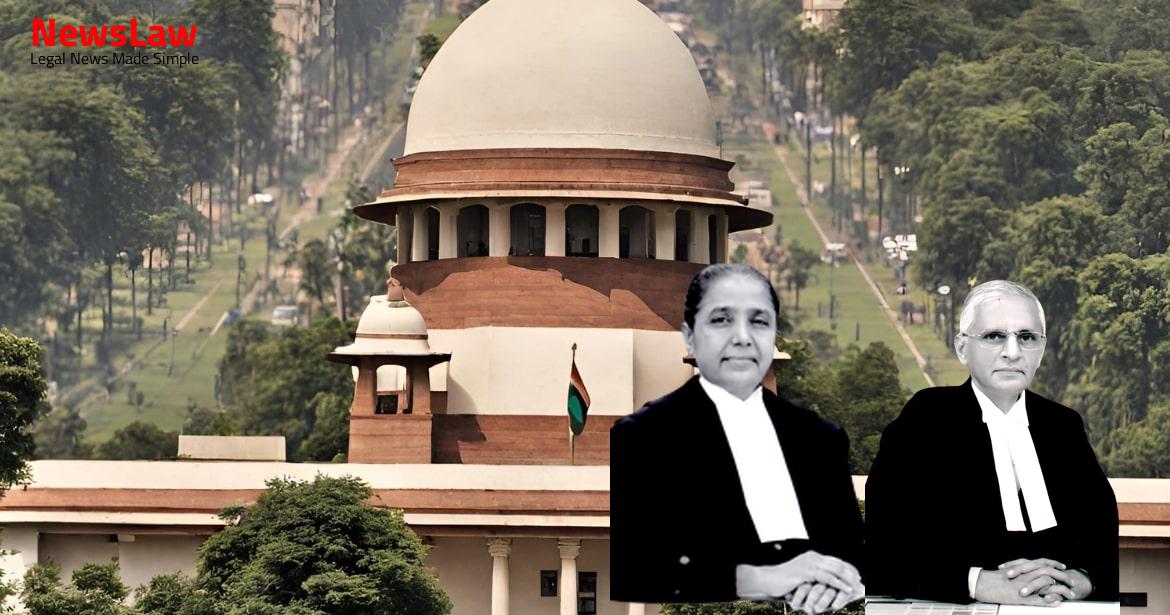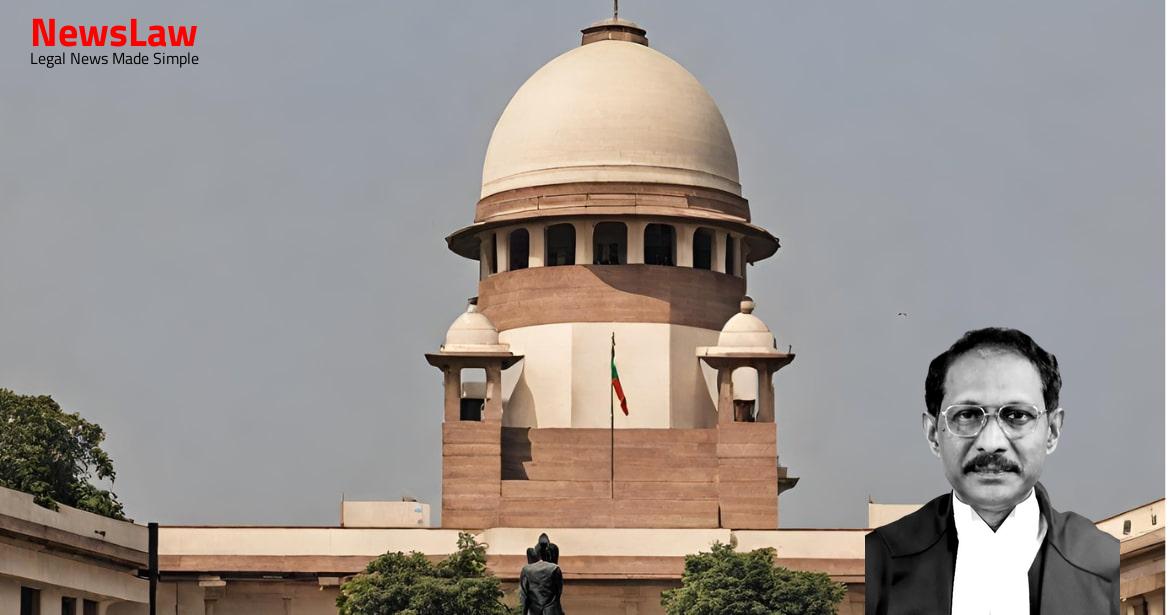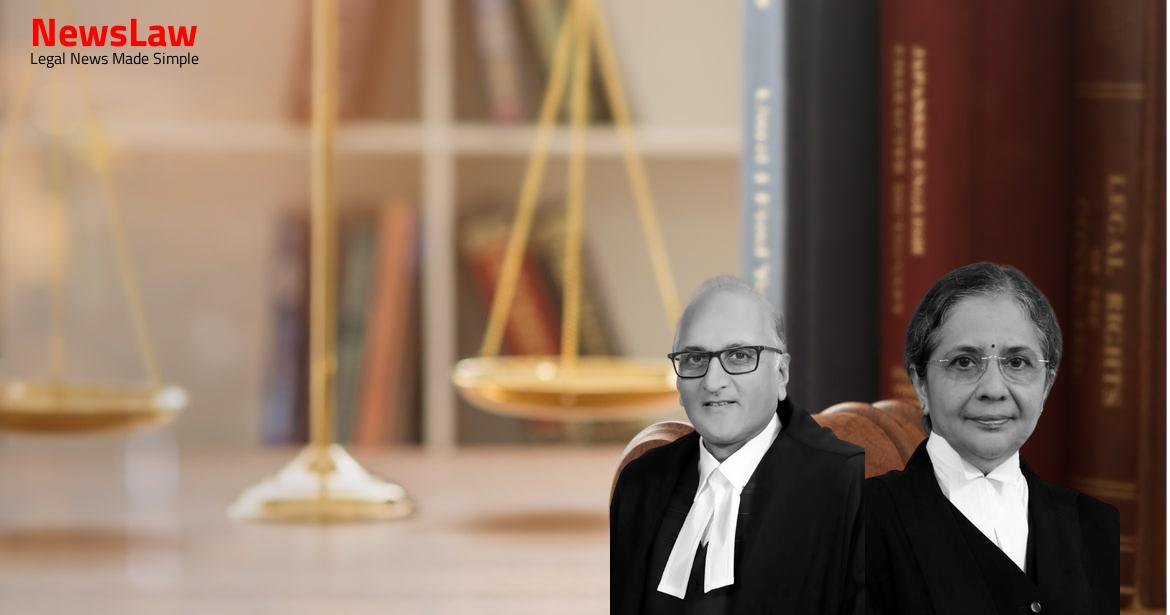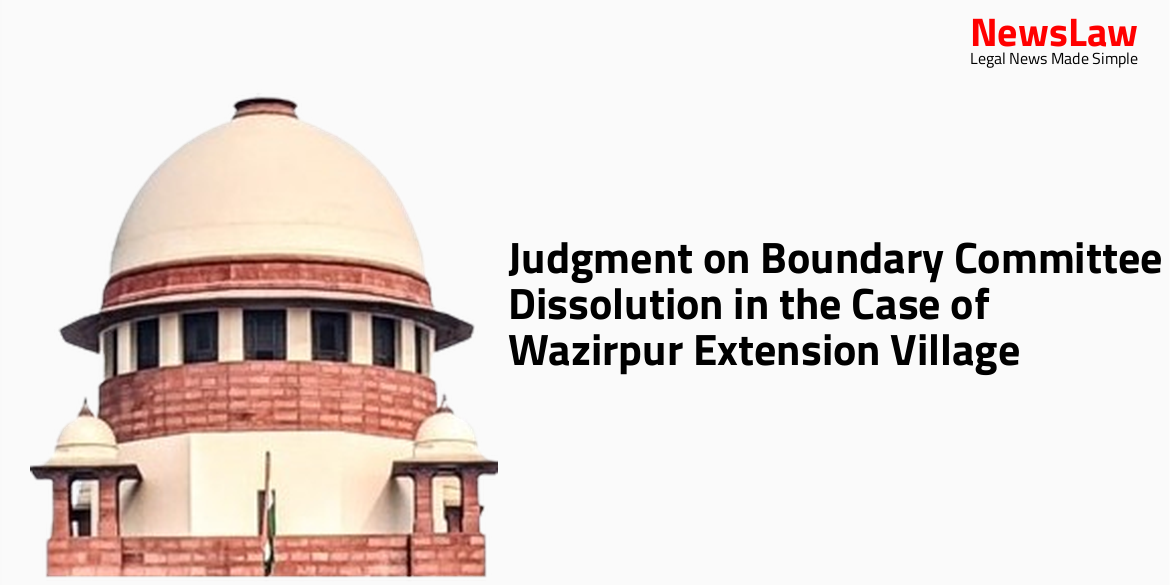The Supreme Court recently handed down a significant verdict in the case involving the respondent, a retired trainee, seeking a change in his date of birth in service records. The respondent’s delayed request for correction, made 25 years after joining service, was deemed unreasonable by the Court. The High Court’s decision to order corrections after almost three decades was overturned, emphasizing the importance of timely and justifiable requests for amendments to service records.
Facts
- The respondent was appointed as a trainee in the company and retired on 31.03.2010.
- In 1998, the respondent indicated his date of birth as 04.03.1950 in the Provident Fund Nomination Form.
- A representation seeking change of date of birth was made in 2009, which was declined by the company.
- The date of birth in service records remained as 04.03.1950 from appointment in 1982 till retirement in 2010.
- The respondent filed a writ petition in 2014, after retirement, challenging the date of birth entered in service records.
- The appellants, aggrieved by the High Court’s order, have appealed before the Supreme Court.
- Division Bench modified the judgment and order dated 13.10.2017 of the Single Judge.
- Relief granted was adjusted in terms of extent.
- Respondent’s request for change of date of birth in service records was accepted.
- Appellants were directed to pay salary equivalent to one year for the period between April 2010 to March 2011.
Also Read: Liability for Employee Actions in Contractual Disputes
Arguments
- Division Bench limited the attendant benefits payable to the respondent to the salary for one year between April 2010 to March 2011.
- Division Bench referred to the reasoning adopted by the learned Single Judge regarding verification of correctness of the matriculation certificate.
- Learned Single Judge relied on the Full Bench judgment of the Jharkhand High Court in the case of Kamta Pandey vs M/s BCCI & Ors.
- Appellants are aggrieved by the orders of both the Single Judge and the Division Bench.
- Division Bench noted the aspect of delay in approaching the Court by the respondent.
- Respondent joined the services of the appellants on 01.03.1982.
- No evidence to indicate that the matriculation certificate was produced before the employer at the time of joining employment.
- Division Bench noted that the respondent filed the writ petition four years after retirement for restoration of employment.
- Respondent had not disclosed his educational qualification in several forms filled during his services.
Also Read: Supreme Court Upholds Rejection of Plaint Under Order VII Rule 11 of CPC: A Critical Analysis
Analysis
- The respondent filed an application 25 years after his induction into service seeking a change in his date of birth, which was deemed unreasonable.
- Past opportunities to correct service record discrepancies were not availed by the respondent until one year before superannuation.
- Verification from Bihar School Examination Board confirmed the date of birth in school records as 20.01.1955, contradicting the date 04.03.1950 claimed by the respondent.
- The High Court’s decision to order corrections after almost three decades was overturned by the Supreme Court, citing that such grievances should not arise at the end of a service career.
- Multiple judgments were referenced by the Supreme Court to establish that changes to date of birth in service records should not be entertained belatedly, especially after a significant period of time.
- Request for change of date of birth in service records at the fag end of service is not sustainable.
- Court relied on the decision in the case of State of Maharashtra and Anr. vs Gorakhnath Sitaram Kamble & Ors. (2010) 14 SCC 423.
- Court also considered the earlier decisions of this Court in reaching the decision.
- Court noted the decision in U.P. Madhyamik Shiksha Parishad v. Raj Kumar Agnihotri [(2005) 11 SCC 465 : 2006 SCC (L&S) 96].
- Courts and tribunals should be cautious in entertaining applications for correction of date of birth made at the fag end of a government servant’s career.
- Any direction for correction of date of birth can have a chain reaction affecting other employees in terms of promotions and irreparable loss.
- Delay of over two decades in applying for correction of date of birth is considered fatal to the case of the government servant.
- Relief can be denied if the request for correction is made after a substantial period of service unless real injustice can be proven and the correct procedure and timelines were followed.
- It is emphasized that correction of date of birth, even with good evidence, cannot be claimed as a matter of right, especially towards the end of a government servant’s career.
- Employee raised a dispute regarding the discrepancies in date of birth and date of appointment after corrections were made.
- Employee consistently indicated the date of birth as 04.03.1950 on various forms throughout the years.
- First representation regarding date of birth made in 2009, more than 30 years after joining service.
- Judicial remedy was not sought before retirement in 2010, and writ petition filed only in 2014, four years after retirement.
- Indulgence shown by the High Court towards the employee was deemed unjustified due to the delayed actions.
Also Read: Validity of Debt and Enforcement of Section 138 NI Act
Decision
- Pending applications disposed of along with the appeal.
- Impugned order set aside.
- Appeal allowed with no order as to costs.
- Orders dated 13.10.2017 and 19.02.2019 by the Single Judge and Division Bench respectively are not sustainable.
Case Title: M/S BHARAT COKING COAL LIMITED Vs. SHYAM KISHORE SINGH (2020 INSC 136)
Case Number: C.A. No.-001009-001009 / 2020



